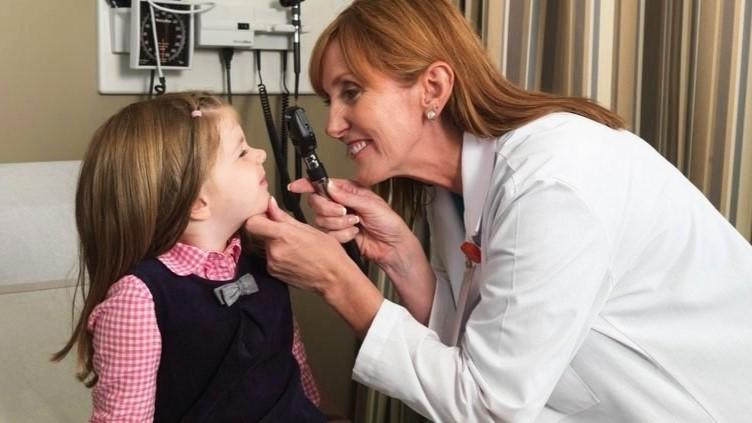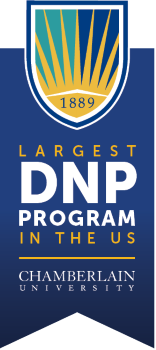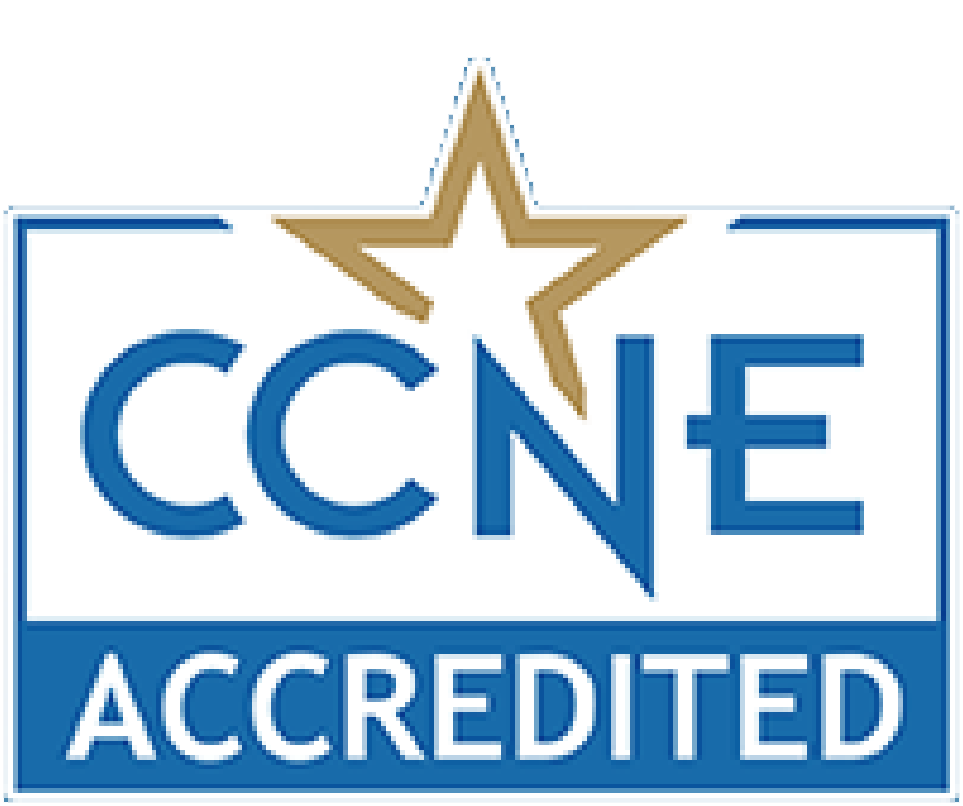Online Doctor of Nursing Practice Degree Program
Next Start Date | Sept 02

DNP Programs at a glance
- Lead clinical practice change to influence healthcare outcomes
- Advance expertise in a variety of topics
- Understand the foundations of practice change and quality improvement
- Build leadership skills that result in quality improvement and increased patient safety
- Provide primary care for vulnerable, culturally diverse populations
- Become a mentor and practice nursing leadership for future generations of nurses
DNP Elective Focus Areas
The program begins with online DNP degree core courses. You’ll take your elective courses in tandem with your didactic coursework, learning from top nurse educators as you prepare for the highest level of professional practice.
After completing your coursework, you’ll move on to your five-part project and practicum—the capstone of your degree.
Healthcare Systems Leadership
Each DNP student will focus on the application of translational science to identify problems, propose solutions, and implement change for healthcare systems as a whole.
This elective focus area is designed for:
- Registered nurses with an MSN
- Nurse Executives, Nurse Informaticists, & Healthcare Policy Leaders
Educational Leadership
This program prepares you to impact nursing practice and patient outcomes through the design, implementation, and evaluation of educational initiatives across various settings.
This elective focus area is designed for:
- Experience or advanced education in teaching
- Nursing academics or continuing education
Advanced Practice Leadership
Students will focus on leadership development and the application of translational science in the direct care of populations across an illness-wellness continuum.
This elective focus area is designed for:
- Advanced practice registered nurses (APRNs)
- Nurses who want to lead, analyze and influence a nursing practice
DNP Admission Criteria FAQs
Chamberlain requires a current, active, unrestricted RN license in the U.S. or in a jurisdiction that is an associate member of the National Council of State Boards of Nursing (NCSBN).
Chamberlain reserves the right to admit candidates with nurse licensure from countries outside the U.S. that are not affiliated with NCSBN but where equivalent standards can be demonstrated. These decisions are made on a case-by-case basis according to the general academic principles of integrity outlined by the Academic Standards Committee.
Chamberlain provides qualified DNP Preparatory applicants and students with the opportunity to receive course waivers through completion of a Chamberlain portfolio. To complete the Chamberlain portfolio process for NR581, NR582, NR583, NR584, NR585, and NR586, applicants or students must successfully document and provide sufficient evidence, to reflect attainment of each course outcome. The faculty will assess each course portfolio submitted to determine if attainment is achieved for each course outcome. In order to receive a course waiver, evidence of all course outcomes must be met. Students interested in this portfolio process should contact their academic support advisor immediately upon admission for more details.
Students with a Bachelor of Science in Nursing degree and a non-nursing master’s degree may submit a portfolio for any or all of the courses listed above to earn qualifying course waivers. Find out more about our DNP Preparatory Course - Waiver Portfolio option or request more information
Chamberlain requires a Bachelor of Science in Nursing degree and a degree in a discipline other than nursing at the master’s level or higher. You must also have a minimum CGPA of 3.0 on a 4.0 scale from an institution accredited by either a regional accrediting agency or an agency recognized by the Council for Higher Education Accreditation (CHEA), Commission on Collegiate Nursing Education (CCNE), or the NLN Commission for Nursing Education Accreditation (CNEA)*
Chamberlain reserves the right to admit candidates with equivalent educational qualifications, from institutions outside the U.S. that are not recognized by CHEA, CCNE, or CNEA as determined by an independent transcript evaluation.
DNP Degree FAQs
A DNP degree, otherwise known as the Doctor of Nursing Practice, is designed to help prepare experts in the nursing field. If you want to expand your clinical practice into a high-level leadership position or become a clinical educator, this could be a great option for you. The DNP is a terminal degree, meaning you will have completed the highest level of nursing education. If you’re exploring how to become a DNP, we encourage you to speak with an admissions representative, who can walk you through the DNP program requirements and process.
Online DNP programs usually consist of 32 to 40 credits and at least 512 clinical practice hours. Chamberlain’s DNP program is two years full-time, taking one course at a time each 8-week session for a total of 12 courses. The first eight courses are didactic and the last four are practicum courses.
The focus of the DNP degree practicum is completing a practice-change project in partnership with their organization's practicum location and their organizational needs. This can be a process improvement, quality improvement or something else that impacts patient care outcomes. Many students will use their current workplace, where they can benefit from the impact of their DNP project. The student must have a current and unrestricted license in the state in which they plan to complete a practicum.
No. Coursework is completed 100% online.
There are no mandatory login times for our Doctor of Nursing Practice program. Most DNP online classes require that you log in two to three times per week.
Chamberlain has several resources to help you become acclimated and comfortable with the online classroom of our Doctor of Nursing Practice program. You can also ask your admissions representative for a personal tour of the DNP online environment. We also have a view series, Online Classroom Demonstration, to learn about what you can expect when you log into your class.
You go to class by logging into your course from a device connected to the internet such as a computer, tablet or smartphone. Request more information to have an admission representative provide you with a comprehensive full course tour.
At Chamberlain, we require our faculty to hold a DNP or Ph.D. in nursing to teach at the master’s level and above. While you can teach at Chamberlain with a DNP degree, requirements may vary by educational institution - so if you have a specific school in mind, explore their requirements for faculty.
Yes! Chamberlain provides registered nurses with the opportunity to enroll in preparatory coursework to prepare for admission to the Doctor of Nursing Practice (DNP) program. Registered nurses with a Bachelor of Science in Nursing (BSN) degree and a master’s degree in a field other than nursing must transfer in or complete at least six designated Chamberlain courses (18 credit hours) prior to being admitted to the Doctor of Nursing Practice degree program. See the admission requirements below for more details.
Chamberlain does not accept transfer of credit toward the didactic courses to protect the integrity of our CCNE-accredited DNP program. We will review and consider hours earned in your MSN degree program for transfer of credit towards the practicum credit and hour requirement. If you are a Chamberlain graduate seeking a DNP degree, now you can add an advanced degree AND up to an additional 6% savings to your professional achievements when you apply. Speak with an admission representative to help you understand your transfer credit and tuition requirements.
Looking for something else?
Explore our related programs.







